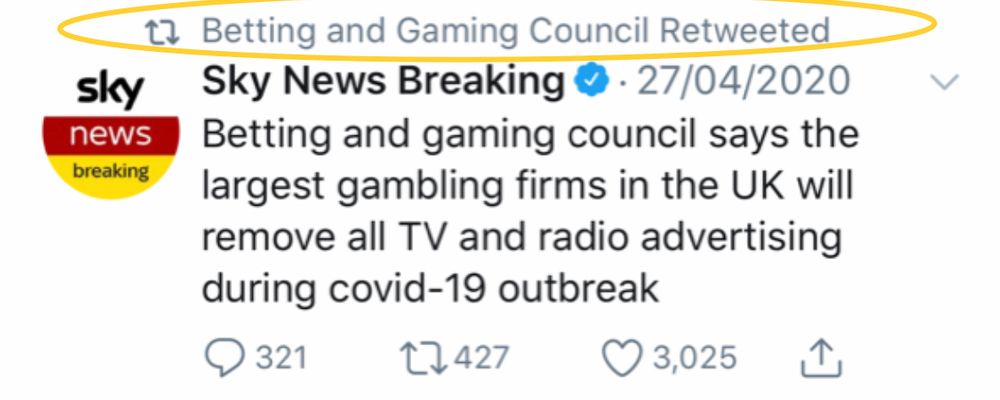
They thought they could get away with it

Matt Zarb-Cousin
11/05/2020
What was sold to the public, media and politicians by online gambling lobbyists as a voluntary removal of TV and radio ads during lockdown has turned out to be something quite different. As the Guardian reported, they have simply replaced gambling ads with what they’ve dubiously described as “safer gambling” messages - which are still branded and encourage people to visit gambling sites and apps.
As Professor Samantha Thomas told the All Party Group on Gambling Related Harm: “They have simply swapped gambling ads for gambling ads. They promote the brand both verbally and visually at least once, but often multiple times. I can’t remember any public health ads on smoking that point viewers to tobacco industry websites.”
While the PR body that represents gambling firms is asking us to effectively check the small print of their initial announcement, there was no confusion around, or attempt to correct, what was initially reported.
Now the sector is in a situation where MPs have written to the gambling minister expressing serious concerns about the content of these so-called “safer gambling” ads, while people are sitting at home baffled as to why they’re still seeing gambling ads on TV.
“All of these ads seek to normalise gambling,” Professor Thomas also noted, citing the PlayOjo advert of a man gambling on his smartphone while getting a haircut. The Mr Green advert ends with the line: “Enjoy award winning online casino with Mr Green”, and the Coral ad directs people to their site.
While these attempted “safer gambling ads” fall predictably short of the public health approach that’s required, it does imply that all the regular ads, including online, texts, emails and on social media, are actually irresponsible or “unsafe”.
Research commissioned for the regulator revealed that the current extent and tactics of gambling advertising and marketing are normalising gambling, as an everyday, risk and harm free leisure activity, with impacts on children, young people and vulnerable people.
The Gambling Commission has failed to highlight this research, relying instead on operators being more responsible. It's the same old story: that the gambling sector will try to get away with whatever thinks it can, aware of the Gambling Commission’s inherent complacency.
Copyright © 2020 Clean Up Gambling.